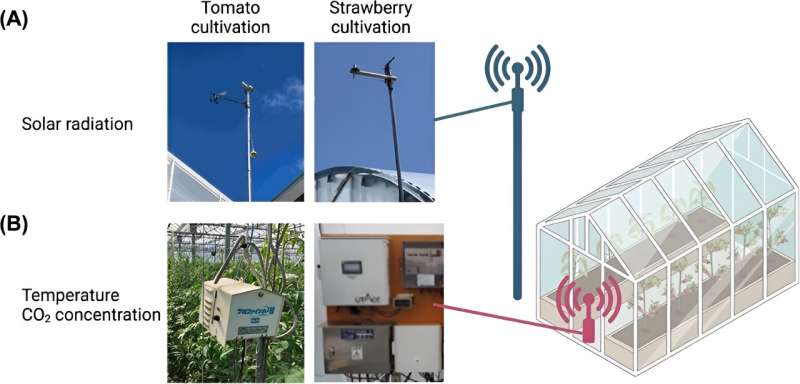Unlocking crop yield potential: New modeling approach for sustainable agriculture

Predicting crop yields is a significant challenge in modern agriculture, especially under fluctuating environmental conditions. With the escalating demand for sustainable food production, understanding the complex interplay between environmental factors and crop growth has become increasingly crucial. These challenges underscore the need for in-depth research on the interactions between crop yields and environmental variables over time.
Conducted by a team from Shiga University and in Horticulture Research on May 24, 2024, the study presents a novel functional data analysis (FDA)-based methodology for predicting crop yields in year-round cultivation. By analyzing time-series data of strawberries and tomatoes grown in natural-light plant factories, the research uncovers how factors like temperature and solar radiation influence yields, providing a new tool for optimizing agricultural production.
The study introduces a varying-coefficient functional regression model (VCFRM) using FDA to investigate the influence of environmental factors like temperature and solar radiation on crop yields over time. The analysis of strawberry and tomato data revealed key periods when these factors most significantly impact growth.
The model's ability to visualize these dynamic interactions offers a deeper understanding of how to optimize conditions for maximum yield. Its interpretability makes it particularly valuable, providing actionable insights into the relationship between environmental conditions and crop performance, which are critical for enhancing resource efficiency and sustainability in year-round crop cultivation.
Professor Hidetoshi Matsui, the lead author, said, "Our FDA-based yield prediction model marks a major step forward in precision agriculture. It not only enhances the accuracy of yield forecasts but also deepens our understanding of how environmental factors influence crop growth over time. This knowledge is crucial for developing more resilient and sustainable agricultural practices in response to climate change."
The findings from this study have wide-ranging applications, particularly in controlled environments like plant factories and greenhouses. The FDA-based model can be adapted to various crops and environmental settings, making it a versatile tool for optimizing production. By enabling more precise management of environmental variables, this approach advances sustainable agriculture, ensuring stable yields and profitability even in challenging conditions.
More information: Hidetoshi Matsui et al, Functional data analysis-based yield modeling in year-round crop cultivation, Horticulture Research (2024).
Journal information: Horticulture Research
Provided by Shiga University




















